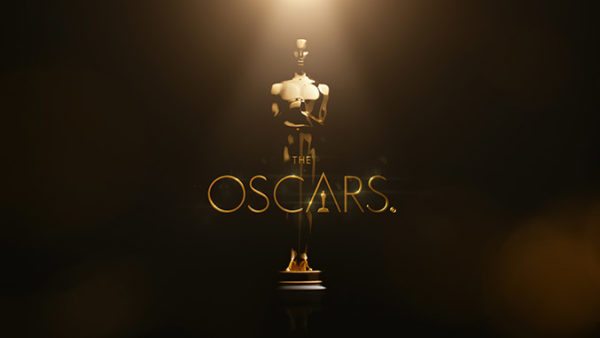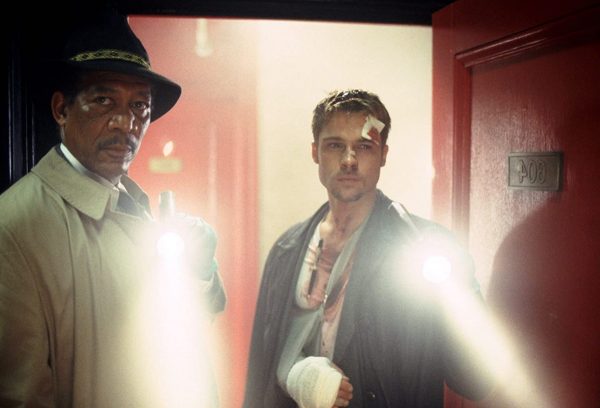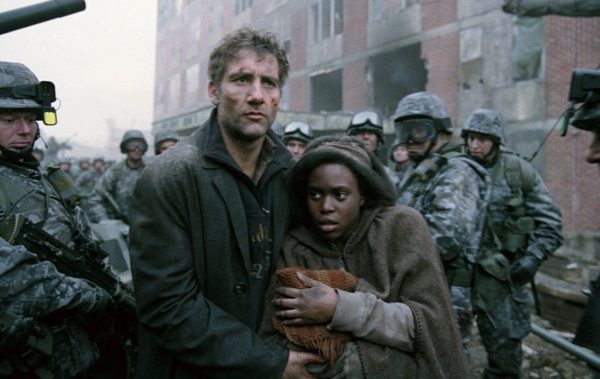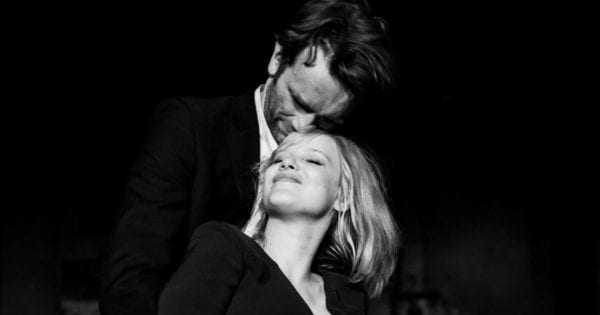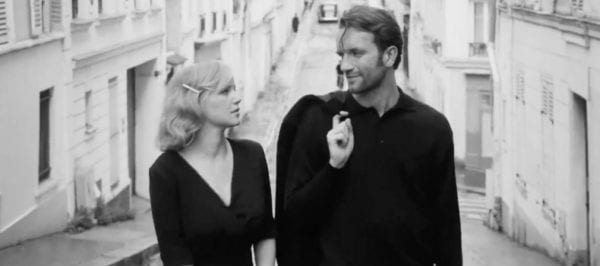Graeme Robertson with four great films that should have been nominated for Best Picture…
The Oscars draw ever near and, even with the pandemic doing its best to screw things up, this year has been gifted with a very strong line-up. However, we’re not talking about those films, instead, as we did last year, we’re going to be looking at a few films that, despite being brilliant, didn’t receive that much desired nomination for Best Picture.
So join me as we take a look at Four Great Films That Should Have Been Nominated For Best Picture (But Weren’t). Seriously, doe anyone have a suggestion for a shorter title for next year?
Once Upon a Time in the West (1968)
After revitalising the Western genre with his celebrated Dollars Trilogy, Italian director Sergio Leone would outdo himself with his follow-up, a film that is, in my view, the greatest Western ever made and possibly one of the greatest films ever made: Once Upon a Time in the West.
Once Upon a Time in the West follows newly widowed Jill McBain, who, after her new husband and his family are killed, finds herself at the centre of a battle between a cold-blooded killer and a mysterious harmonica-playing gunslinger.
The cast is superb, with each of the principals bringing their best to the film. Claudia Cardinale, while dubbed throughout, delivers a moving performance as a grieving widow who grows to become a powerful and resourceful heroine, her excellent on-screen chemistry with Jason Robards wise-cracking gunslinger Cheyenne making some of the film’s sweetest moments. In the role of the mysterious Harmonica, Charles Bronson cuts a formidable figure, his hardened features, piercing eyes and sparse dialogue making for a suitably intriguing and elusive protagonist. The real surprise is Henry Fonda in an against-type performance as the cold-blooded killer Frank, the actor using his charm and once-friendly face to create a sinister and fearsome villain.
Those expecting Once Upon a Time in the West to be a fast-paced bullet strewn bloodbath might want to look elsewhere. A slow-burning epic that, despite clocking in at nearly 3 hours, never once feels dull or so much as drags. Every frame is brimming with character, the outstanding cinematography packing the film with beautiful shots of the vast open West that contrasts with the often ugly characters that populate it. The pace is slow and methodical. Allowing the viewer to soak up every bit of atmosphere and enjoy the visual splendour on display as Ennio Morricone’s majestic musical score serenades us with a mixture of haunting ballads and striking guitars. Despite being a Western, violence is sparse throughout Once Upon a Time, but its effects are felt throughout. The few gunfights that pepper the runtime are spectacular, the final duel between Frank and Harmonica, in particular, being a masterclass in staging and building tension. Leone ratcheting up the suspense with several minutes of build-up, all before it ends in seconds with a single echoing gunshot.
If you can’t tell already, I really love Once Upon a Time in the West. It’s simply a masterpiece from the first frame to the last and a film that not only should have been nominated for Best Picture, but maybe it should have won it.
Se7en (1995)
While his latest film Mank leads the current Oscar race with 10 nominations, including Best Picture, I feel that more recognition should have been given to the film that helped establish David Fincher as a unique and towering talent. The dark serial killer drama Se7en.
Se7en follows homicide detectives Mills and Somerset as they hunt a sadistic and meticulous serial killer inspired by the Seven Deadly Sins.
Shot through in a desaturated and dreary visual style that creates a suffocating atmosphere from which there feels like no escape, Se7en is an intoxicating and disturbing trip into the darkest recesses of the human mind. The tone is unrelentingly bleak throughout, with little to no light shining through the increasingly grisly story. The story itself, which, on the surface, is a police procedural, is used to brilliant effect as an avenue to explore complex themes. Themes such as human nature, the concept of evil and trying to find the point in living in a violent world in which death and misery lurk around every corner. It’s a fascinating approach that adds layers of depth to what could have otherwise been a fairly standard detective story.
While the plot is brilliant, what makes Se7en so memorable and engaging is the way it gets under your skin. This is a gruesome film and not one for the faint of heart. However, the master-stroke that makes these dark elements so impactful and disturbing is that, very rarely, do you ever see the whole picture. None of the murders are depicted on screen. Instead, we only see the crime scene and are forced, like the detectives, to derive motive and meaning from the carnage. Again, it’s another touch that makes what could have been a cliched gory horror thriller into a far more intelligent and scarier film.
Morgan Freeman and Brad Pitt do some of their finest work as Detectives Somerset and Mills, respectively, the unlikely pairing making for a believable crime-solving duo as they clash in temperament and styles. Freeman’s performance is particularly brilliant, ranking as one of the actors best. His gifted but mentally exhausted Somerset, playing like a more realistic and nihilistic spin on the classic “I’m too old for this shit” detective character.
An intelligent and disturbing take on the serial killer sub-genre, Se7en is, without question, one of the best films of the 1990s. While possibly too dark and violent for the Academy, I feel that after The Silence of the Lambs won Best Picture, Se7en deserved at least a nomination or five.
SEE ALSO: Se7en: Looking back at David Fincher’s masterpiece 25 years on
Children of Men (2006)
Science fiction doesn’t tend to get much love from the Academy, with the genre only enjoying a handful of nominations for Best Picture. However, one sci-fi film that could have and should have broken through is Alfonso Cuaron’s dystopian sci-fi drama Children of Men.
Children of Men takes place in the year 2027, 18 years after the last human was born, with humanity facing the prospect of its own extinction. Against humanities seemingly inevitable demise, former human rights activist Theo is recruited to escort a miraculously pregnant African refugee across Britain to rendezvous with a research vessel in the hopes of saving the human race.
Crucial to the success of Children of Men is its visual style. Shot mainly with handheld cameras that places the viewer into the thick of the action and lending the film an almost documentary-like atmosphere. This visual style lends itself well to the various spectacularly constructed set pieces, often edited to appear as if shot in a single take. Moments such as a fateful care journey that ends in tragedy. Or a rapid dash through a slum as it erupts into open warfare, blood and dust spraying the camera lens as it rushes through the carnage. However, the most intriguing moments are when the camera moves away from the protagonists. Focusing on images such as a group of refugees being held in cages at a train station or an armed militia marching through the slums as they ready themselves for battle.
Holding the film together is a career-best Clive Owen as Theo. The actor, believably navigating the transformation from a hard-bitten and heartbroken cynic who eagerly awaits extinction into a hero willing to risk everything for a chance to save humanity. Owen using his lack of traditional action hero qualities to his advantage, with his increasingly dishevelled exhausted appearance and lack of combat prowess (he never once picks up a gun) lending him a heroic Everyman quality.
While Children of Men might seem unrelentingly bleak, particularly with its eerily prescient themes concerning immigration and refugees, environmental concerns and the prospect of humanity facing its own, likely self-inflicted extinction. On the contrary, though, the film is actually a tale of hope in the face of adversity. An optimistic message that, despite the bleakness of much of the runtime, you can’t help but feel moved by.
Powerful and poignant, Children of Men is, in my view, one of the finest sci-fi films ever made. Demonstrating the soaring heights that this often-maligned genre can reach. I just wish the Academy felt the same way and awarded the film a Best Picture nomination.
Cold War (2018)
The title would have you expecting a sprawling take on the complex ideological conflict between East and West that damn near blew the planet to pieces. However, what we actually have is a poignant love story set against the backdrop of the political transformation of Eastern Europe; Pawel Pawlikowski’s Cold War.
Cold War follows musician Wiktor, who, while holding auditions for a travelling music group in post World War II Poland, becomes enamoured by singer Zula. Sparking a passionate affair spanning years.
The plot might be simple, bordering on thin. However, despite this narrative simplicity, Cold War fills every second of its modest runtime with more passion and emotion than most romance films churned out by Hollywood every year.
The enchanting performances of Tomasz Kot and Joanna Kulig, as Wiktor and Zula, respectively, only add to the raw emotional power of the film. Their electrifying chemistry, conveying an intense passion that smoulders through every frame they’re together on-screen. Kulig’s performance is particularly captivating, her soulful and beautiful singing voice piercing through to your very soul.
The black and white cinematography is a gorgeous feast for the eyes. Every shot is carefully composed with the creative use of lighting and shadow, subtle camera moves and occasional use of handheld camerawork, allowing the emotions to pour off the screen. Often without a word of dialogue being needed. This is a film I’ll happily watch again just for the visuals alone.
Complimenting the stunning visuals and are the musical sequences that pepper the film, depicted mainly through a series of expertly staged live performances. Highlights include a medley of traditional Polish folk songs, creatively re-arranged for orchestral performance and often aided by striking dance routines. Even a rendition of an old Communist anthem praising Stalin is movingly performed, its political content rendered easy to overlook thanks to the enchanting vocal talents of the choir performing it. The stand out musical piece that recurs is “Two Hearts”, another traditional Polish folk song stunningly re-worked into a haunting jazz number movingly performed by Kulig. The scene of Kulig performing it in a dark French club might a relatively short one, but it’s one that lingered in my mind long after the credits rolled.
Cold War is a stunning film that ranks as one of the most heart-achingly moving romance films of the last decade. And one that, in addition to its nods for Best Director, Best Foreign Language Film and Best Cinematography, should have received an Oscar nomination for Best Picture.
SEE ALSO: Oscars: Five Great Films That Should Have Been Nominated for Best Picture (But Weren’t)
What films do you think were robbed of a Best Picture nomination? Let us know on our social channels @FlickeringMyth…
Graeme Robertson – Follow me on Twitter.
